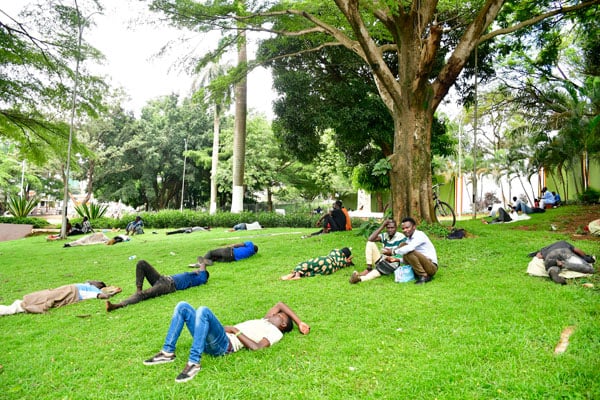Prime
How does one survive today on Shs200,000 per month?

Author: Angella Nampewo. PHOTO/FILE
What you need to know:
- The story of how the Ugandan worker survives on their wages is shrouded in mystery.
Someone recently asked me what the lowest paid Ugandan worker earns per hour. First of all, the whole per hour question took me by surprise. We do not generally express our wages in those terms. Thus, I never got round to doing the Maths this way. Then, almost as if on cue, Daily Monitor supplied some answers this week.
Quoting the National Labour Force Survey 2021, this publication reported that 60 percent of Ugandan households earn Shs200,000 per month. The struggle is real. A total of Shs200,000 per month means that one has roughly Shs6,000 per day but that is ceteris paribus, all factors remaining constant. We are hoping that this covers at least two meals a day and just the basic cassava, no room for expensive meals.
After meals, I do not know what is left over for rent, transport, medical care and any number of other personal needs. This wage of 200k, I imagine, can only sustain a single man or woman surviving on a regular kikomando and somehow getting by. I cannot imagine what Shs200,000 per month means for a family with children.
The only other way is if the wage earner hands over all of his earnings every month to a loan shark or some other credit facility and lives in perpetual debt from one month to the next. Surely, with the kind of commodity prices in the market, just a bar of soap and a litre of cooking oil can threaten to obliterate a whole tenth of one’s salary at a monthly Shs200,000. Imagine subjecting one’s whole monthly budget to that measly amount.
As an editor, when writers submit stories about people making it from rags to riches, I often ask pointed questions about how they put the wealth together.
I want an illustration showing how and where the money came from before it accumulated. Like stories of accumulating wealth, the story of how the Ugandan worker survives on their wages from month to month is shrouded in mystery. It is something of a miracle, really.
The expatriate who asked me about earnings per hour was shocked to learn that the price of bread in their own developed nation is roughly the same as it is in this Matooke Republic and yet over there, the lowest paid worker earns more than 30 times what the Ugandan lowest earner makes per hour.
At a conservative estimate, Shs200,000 per month is equal to roughly Shs1,250 per hour on the assumption of eight hours worked per day for five days every week. In the cheapest kafunda, this will get you a Rolex (flat bread) with only one egg. One most certainly cannot afford a regular loaf of sliced bread or even a couple of cassava tubers on their hourly wages.
We are stuck in a vicious cycle where we might find it hard to put an end to damaging practices such as early marriage and teenage pregnancy, among others. If someone comes forward with an offer of a little money or even a sack of cassava, parents have been known to hand over their underage children to the nearest suitor. Children have dropped out of school to be part of the family hustle to make ends meet.
It is scary to imagine the kind of things some Ugandans might be getting up to keep body and soul together in these hard economic times. And yet somehow we get by. Along the way we lose some people to vagaries of an ugly economy as the price of maize and cassava continues to outpace the hourly rate of the ordinary Ugandan.
Ms Angella Nampewo is a writer, editor and communications consultant



